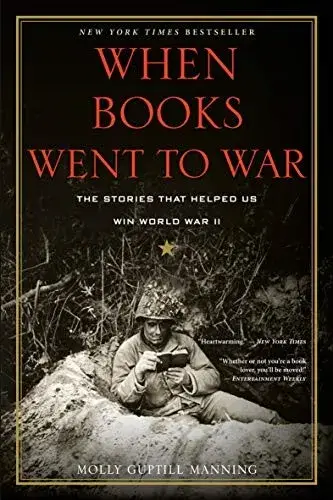

Lecture by Molly Guptill Manning
When America entered World War II in 1941, we faced an enemy that had banned and burned 100 million books. Outraged librarians launched a campaign to send free books to American troops, gathering 20 million hardcover donations. Two years later, the War Department and the publishing industry stepped in with an extraordinary program: 120 million specially printed paperbacks designed for troops to carry in their pockets and rucksacks in every theater of war.
These small, lightweight Armed Services Editions were beloved by the troops and are still fondly remembered today. Soldiers read them while waiting to land at Normandy, in hellish trenches in the midst of battles in the Pacific, in field hospitals, and on long bombing flights. This pioneering project not only lifted soldiers’ spirits, but also helped rescue The Great Gatsby from obscurity and made Betty Smith, author of A Tree Grows in Brooklyn, into a national icon.
Molly Guptill Manning is an Assistant Professor of Law at New York Law School, where she teaches Legal Practice, Civil Procedure, and Professional Responsibility.
Professor Manning’s scholarship focuses on legal history and the intersection between law and culture. She has written articles on soldiers’ voting rights, fraud and poetic license, and prisoner’s access to the federal courts. Her articles have been published in the Columbia Journal of Law and the Arts, New York University Journal of Legislation and Public Policy, and the Federal Bar Council Quarterly, to name a few. She has also written several books including When Books Went to War, a New York Times best seller. She is currently working on a fourth book on the First Amendment. She has been interviewed on MSNBC, NPR Morning Edition, and WNYC, and she has given talks across the United States, including at the FDR Presidential Library, the Library of Congress, and the U.S. Senate Library.